Recent Blog Posts
What Are the Consequences of Failing to Appear in Court?
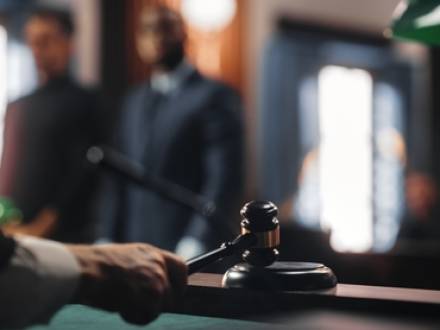 People who are charged with criminal offenses in Illinois are typically required to appear in court at scheduled dates throughout the legal process. Failing to appear in court can result in serious legal consequences that could extend far beyond the original charges. If you are involved in legal proceedings, you need to understand the potential outcomes of missing your court date and what you might be able to do to address the situation. A qualified Illinois criminal defense lawyer can offer valuable guidance as you go through the process.
People who are charged with criminal offenses in Illinois are typically required to appear in court at scheduled dates throughout the legal process. Failing to appear in court can result in serious legal consequences that could extend far beyond the original charges. If you are involved in legal proceedings, you need to understand the potential outcomes of missing your court date and what you might be able to do to address the situation. A qualified Illinois criminal defense lawyer can offer valuable guidance as you go through the process.
What Happens if I Fail to Appear on My Court Date?
Failing to appear in court in Illinois is a serious offense that can lead to additional charges and penalties beyond those you were scheduled to appear in court for in the first place. The specific consequences you could face depend on the nature of the original case and the circumstances surrounding your absence in court. Some potential outcomes include:
What Happens If I Am Accused of Violating an Order of Protection?
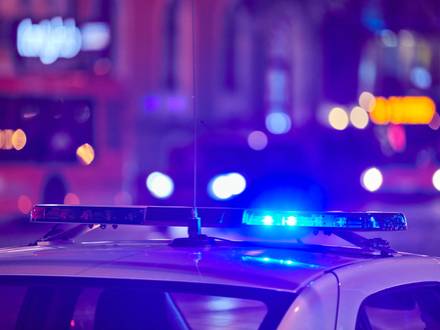 Being accused of violating an order of protection in Illinois is a serious matter and you could end up facing significant legal consequences. There are many reasons why someone might be wrongly accused of this type of violation, ranging from an innocent misunderstanding to something more vindictive. Whatever the case may be, if you are accused of doing something to violate an order of protection, speak with an experienced Illinois criminal defense lawyer who can explain your options and protect your rights.
Being accused of violating an order of protection in Illinois is a serious matter and you could end up facing significant legal consequences. There are many reasons why someone might be wrongly accused of this type of violation, ranging from an innocent misunderstanding to something more vindictive. Whatever the case may be, if you are accused of doing something to violate an order of protection, speak with an experienced Illinois criminal defense lawyer who can explain your options and protect your rights.
How Do Restraining Orders Work in Illinois?
A restraining order, officially known as an order of protection under Illinois law, is a court order intended to protect someone from abuse, harassment, or threats. These orders are often issued in cases involving domestic disputes, and they can place restrictions on where the accused can go, who they can contact, and what they can do.
How Long Will My DUI Stay on My Record in Illinois?
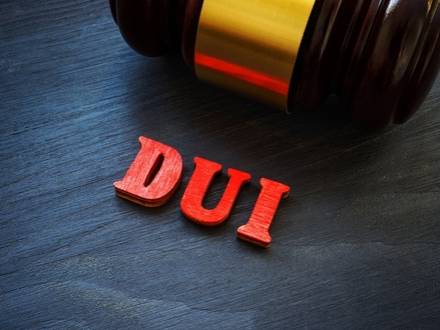 Getting charged and convicted of driving under the influence (DUI) can have long-lasting consequences, including a criminal record that can follow you for years afterward. Since this can present challenges when you pursue educational, housing, and employment opportunities, you are likely wondering how long the DUI stays on your record. Speak with a qualified Illinois criminal defense lawyer to understand how he can help mitigate the impact of your DUI and protect your future.
Getting charged and convicted of driving under the influence (DUI) can have long-lasting consequences, including a criminal record that can follow you for years afterward. Since this can present challenges when you pursue educational, housing, and employment opportunities, you are likely wondering how long the DUI stays on your record. Speak with a qualified Illinois criminal defense lawyer to understand how he can help mitigate the impact of your DUI and protect your future.
How Long Does a DUI Stay on Someone’s Record?
In Illinois, a DUI conviction is considered a permanent mark on your driving record. Unlike some other offenses, it cannot be expunged or sealed. This means it will remain on your public record indefinitely.
Can I Be Arrested for a Crime I Did Not Commit?
 Being arrested for something you did not do can be an awful experience. If you find yourself in this situation, it is extremely important that you know your rights and understand your options within the criminal justice system. While Illinois law is intended to ensure fairness, there are certainly cases of injustice and wrongful convictions. A dedicated Illinois criminal defense lawyer can fight aggressively for justice to be served.
Being arrested for something you did not do can be an awful experience. If you find yourself in this situation, it is extremely important that you know your rights and understand your options within the criminal justice system. While Illinois law is intended to ensure fairness, there are certainly cases of injustice and wrongful convictions. A dedicated Illinois criminal defense lawyer can fight aggressively for justice to be served.
How Do Wrongful Arrests Happen?
Someone can be wrongfully arrested for a variety of reasons. Whether there was mistaken identity, fabricated evidence, or miscommunication between law enforcement officers, a wrongfully accused defendant is a victim of a serious miscarriage of justice. Illinois law demands that the police have probable cause to make an arrest, and if you are arrested based on false information or insufficient evidence to justify it, it is a violation of your rights. An experienced criminal defense attorney can help challenge the arrest and fight for your rights in court.
Is It Legal to Record Police Officers during an Arrest in Illinois?
 In Illinois, there is no clear-cut answer about whether you are within your legal rights if you record a police officer while you are arrested. The reason why is that the First Amendment's freedom of expression and right to gather information and the state’s privacy laws can seem at odds with each other in some cases.
In Illinois, there is no clear-cut answer about whether you are within your legal rights if you record a police officer while you are arrested. The reason why is that the First Amendment's freedom of expression and right to gather information and the state’s privacy laws can seem at odds with each other in some cases.
Recently, awareness of the importance of gathering visual proof of what happens during an arrest has grown. As more people instinctively reach for their phones to film an arrest to make sure any violations of someone’s rights will not be silently accepted, it is important to understand that this could result in criminal charges. A qualified Illinois defense lawyer can explain your rights and protect your interests.
How Does the Illinois Eavesdropping Law Impact Accusations of Recording an Officer?
Illinois has some of the strictest privacy laws in the country, particularly its Eavesdropping Act, which states that it is illegal to record a conversation if you do not have the consent of everyone involved. However, there are certain exceptions when it is generally acceptable to record public officials, including police officers, even without getting their consent to do so.
Can I Get a DUI Because of My Prescription Medication?
 We are fortunate to live in a time when modern science and technology have developed medicines for a large variety of ailments. There are so many medications on the market that it is easy to just take something without stopping to think about it. However, some prescription drugs can affect you in certain ways, which is why some come with warnings about not operating heavy machinery while you take them.
We are fortunate to live in a time when modern science and technology have developed medicines for a large variety of ailments. There are so many medications on the market that it is easy to just take something without stopping to think about it. However, some prescription drugs can affect you in certain ways, which is why some come with warnings about not operating heavy machinery while you take them.
You might have no idea you could potentially face legal trouble for just taking your medicine and going about your day, but some medicines can affect you enough that you could end up facing charges for driving under the influence (DUI). If you get pulled over when taking medicine and end up with a DUI charge, speak with a qualified Illinois criminal defense lawyer who can review your case and fight for your rights.
Need a Job after Serving Time, but No One is Hiring? Read On
 It is no secret that you need money to afford to live. People coming out of jail trying to reintegrate into society are no exception. And to earn money, you need a job. Unfortunately, after a conviction, many people find that getting hired for a job is no simple task. Even if someone has the exact qualifications required for a job, their criminal record can keep their application from being seriously considered.
It is no secret that you need money to afford to live. People coming out of jail trying to reintegrate into society are no exception. And to earn money, you need a job. Unfortunately, after a conviction, many people find that getting hired for a job is no simple task. Even if someone has the exact qualifications required for a job, their criminal record can keep their application from being seriously considered.
Fortunately, as awareness of these challenges has increased, the legal system has been developing ways to address this unfairness. If you believe you are being discriminated against in your job search because of your criminal record, speak with a compassionate Illinois criminal defense lawyer who can explain your options.
How Does Illinois Address Employment Challenges After a Conviction?
Illinois has adopted the Job Opportunities for Qualified Applicants Act, otherwise known as the Ban the Box policy. The purpose of this act is to make fair employment opportunities more accessible to job applicants with a criminal record. The name "Ban the Box" comes from a common question on job applications: "Do you have a criminal record?" Often, this question has a small box next to it where you are expected to write a checkmark if you have a criminal record.
Can You Challenge Breathalyzer Test Results?
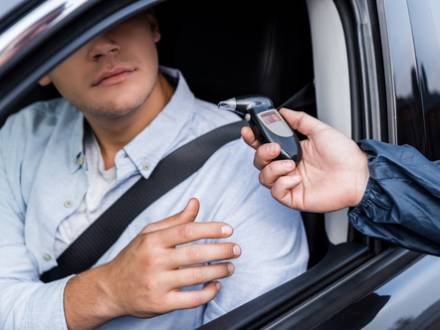 In most cases where a driver is suspected of driving under the influence (DUI), the police officers will pull him or her over and perform a breathalyzer test. In Illinois, as with most of the country, the legal limit is .08 percent, and if a driver gets a higher result, it generally leads to DUI charges. However, over the years, the machines used to perform the breathalyzer tests have been found faulty in many ways, and their results are sometimes considered unreliable. If you are facing DUI charges, speak with an experienced Illinois criminal defense lawyer about options for getting them dismissed.
In most cases where a driver is suspected of driving under the influence (DUI), the police officers will pull him or her over and perform a breathalyzer test. In Illinois, as with most of the country, the legal limit is .08 percent, and if a driver gets a higher result, it generally leads to DUI charges. However, over the years, the machines used to perform the breathalyzer tests have been found faulty in many ways, and their results are sometimes considered unreliable. If you are facing DUI charges, speak with an experienced Illinois criminal defense lawyer about options for getting them dismissed.
Common Strategies for Challenging Breathalyzer Tests
There are several reasons why the results of a breathalyzer test can be challenged. They typically fall under one of the following categories: issues with the machine, issues with the machine operator, or issues with the test subject:
Can You Face Criminal Charges for Yelling at a Meter Maid?
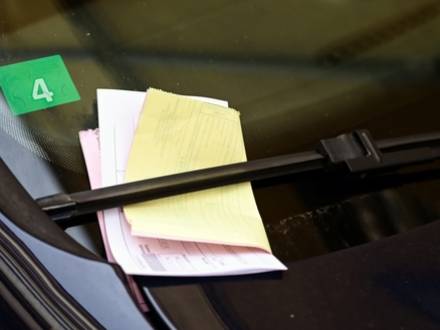 Anyone who has gotten back to their car only to find a parking ticket on their windshield knows how frustrating it can be. If you happen to be there when the parking enforcement officer, commonly known as a "meter maid," is there, you might be tempted to vent your anger at him or her. However, yelling at a meter maid can get you into legal trouble in Illinois in certain situations. To learn more, speak with a qualified Illinois criminal defense lawyer who has experience defending clients against a wide variety of criminal charges.
Anyone who has gotten back to their car only to find a parking ticket on their windshield knows how frustrating it can be. If you happen to be there when the parking enforcement officer, commonly known as a "meter maid," is there, you might be tempted to vent your anger at him or her. However, yelling at a meter maid can get you into legal trouble in Illinois in certain situations. To learn more, speak with a qualified Illinois criminal defense lawyer who has experience defending clients against a wide variety of criminal charges.
Where Is the Line Between Free Speech and Harassment?
One of the constitutional amendments that Americans hold dear and often reference is the right to free speech. This includes expressions of anger, frustration, or disagreement, even when the person you are speaking to is a meter maid. However, there are limits to free speech; if you say something that can be considered a threat, harassment, disorderly conduct, or incitement to violence, you could end up in legal trouble. Some examples of when fighting with a meter maid could result in criminal charges include:
Can I Be Sent to Jail if My Child Threatens a School Shooting?
 With school shootings claiming more lives across the country every year, authorities take even the threat of one very seriously and anyone behind a threat can face severe consequences, including criminal charges. If your child has threatened school violence, he can face charges of making a terrorist threat, even as a juvenile. As the parent and guardian, you could face charges and other legal implications as well.
With school shootings claiming more lives across the country every year, authorities take even the threat of one very seriously and anyone behind a threat can face severe consequences, including criminal charges. If your child has threatened school violence, he can face charges of making a terrorist threat, even as a juvenile. As the parent and guardian, you could face charges and other legal implications as well.
You might think this is just something that teenagers talk about and it should be seen as harmless because he would never actually hurt anyone, but you need to take it seriously because both he and you could be penalized. If you are dealing with these challenges, speak with a qualified Illinois criminal defense lawyer who can review the case and offer professional guidance.














